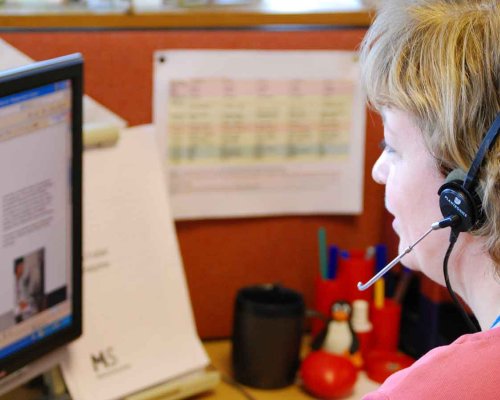
Practical matters after someone dies
If someone close to you dies, you might have to manage a lot of admin and practical tasks at a very difficult time. We hope this information helps.
Find support for the emotional impact of losing someone
Paperwork and funerals
There are a lot of things to sort out after someone dies. What needs to happen first will depend on whether they died at home, in hospital, or in another country. There are a lot of people and organisations that need to be informed too.
There are 3 things that must be arranged after a person has died:
1 . Get a medical certificate of cause of death
You can usually get this certificate from the GP for the person who died, or from the hospital if they died there. If the cause of death wasn’t clear, you might need to get the certificate from the coroner’s office, or in Scotland from the procurator fiscal.
If they died abroad, government information will help you find out what you need to do.
- Government information if someone dies abroad, if you live in England or Wales
- Government information if someone dies abroad, if you live in Scotland
- Government information if someone dies abroad, if you live in Northern Ireland
2. Register the death
To register the death you’ll need the medical certificate of cause of death. Once you’ve registered the death you’ll get a death certificate and the documents you need to book the funeral.
When you register the death in England, Scotland and Wales you will be told about the government’s Tell Us Once service which aims to make things easier to manage:
- Register a death in England and Wales
- Register a death in Scotland
- Register a death in Northern Ireland
3. Arrange the funeral
You can arrange a funeral yourself or use the services of a funeral director. If you do it yourself, you can get help from the Natural Death Centre or your local council.
There are different ways to pay for a funeral:
- With a financial scheme set up by the person who’s died, like a pre-paid funeral plan or an insurance policy
- By you, or other family members or friends.
- By applying to the government for a ‘grant of representation’ (sometimes called ‘applying for probate’). This uses money that the person had in their ‘estate’ (savings and property they owned)
You might be able to get help with funeral costs
All 4 UK governments have useful information on registering a death, arranging a funeral, and coping with the death of a loved one.
- England and Wales government information for when some dies
- Scotland government information for when some dies
- Northern Ireland government information for when some dies
Help with funeral costs
If you’re on a low income and you get certain benefits, you might qualify for help from a government funeral payment scheme. You’ll usually have to pay it back from any money left from the person’s estate (like savings or property they owned).
Even if the person who died had a pre-paid funeral plan, you can still use the scheme if you’re eligible. It could cover the cost of items not included in the plan.
You can find out more and see if you qualify through government websites:
- England and Wales Funeral Expenses Payment
- Scotland Funeral Support Payment
- Northern Ireland Funeral Expenses Payment
Your benefits and finances after someone dies
Your benefits, taxes and pension might change, depending on your relationship with the person who died. A benefits adviser can help you check you get all the benefits you’re entitled to.
Read more about benefits and benefits advisers
Bereavement Support Payment
If you’re a widow, widower or civil partner, you might be able to get the Bereavement Support Payment (BSP). You could be eligible if you are under State Pension age and your late partner paid National Insurance contributions for at least 25 weeks.
The amount you get depends on your circumstances. You need to claim within 3 months of their death to get the full amount, or within 21 months to get some payment.
- Find out more from gov.uk about the Bereavement Support Payment in England, Wales or Scotland
- Find out more from gov.uk about the Bereavement Support Payment in Northern Ireland
If someone has debts when they die
If someone has debts when they die, people can claim what they’re owed from assets or money that’s left behind (called the ‘estate’). But if the debts are more than the value of the estate no one else has to pay the difference. That debt’s written-off.
The estate is managed by ‘executors’. These could be family or friends or a solicitor or other legal professional chosen by the person who died. It might be family or friends and a solicitor.
Dealing with an estate can be complicated. You might need legal advice as well as money advice, and several organisations could be helpful:
Check if you need to apply to stay in the UK
If your right to live in the UK depended on your relationship with someone who has died you might need to apply for a new visa. You can check the rules for these visas at gov.uk


